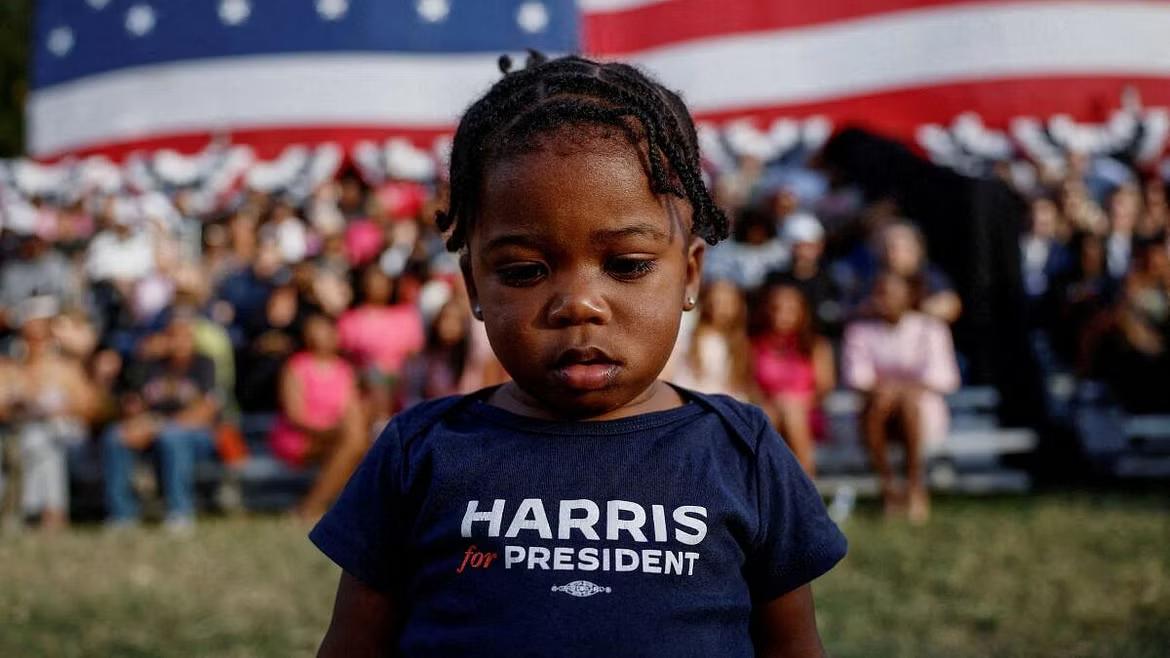After suffering what could shape up to be their biggest electoral defeat in more than 40 years, Democrats agree on one thing: They need to figure out what went wrong.
The question is how.
After Republicans failed to oust President Barack Obama and lost ground in the Democratic-held Senate in 2012, GOP leaders produced a 100-page report on what had gone wrong, which has been known ever since as the “autopsy.”
Democrats didn’t do that after Hillary Clinton’s narrow defeat by Donald Trump in 2016. But as my colleague Adam Nagourney and I dialed up Democrats all over the country Friday, we got the sense that a push for a similar exercise had begun in some quarters.
It’s coming from party stalwarts like Donna Brazile, a former interim chair and current at-large member of the Democratic National Committee.
“It’s vital that we learn why turnout disappeared from 2020 to 2024 and much more,” Brazile wrote in an email.
It’s coming from left-leaning lawmakers like Pramila Jayapal, the chair of the Congressional Progressive Caucus.
“People rightfully believe the system is broken — and we need to earn their votes,” Jayapal said in a statement. “I believe, as a party, we must undertake a process that brings in all wings of the party, dives into data and listens to voters, not just hot takes.”
Swing-district Democrats, like Rep. Tom Suozzi of New York, who held onto his seat on Trump-friendly Long Island on Tuesday, also think the party has a lot to learn.
“Trump won my district by 19,000 votes. I won by 9,000 votes,” Suozzi wrote me in a text message. “Democrats should not be asking, ‘How could they vote for him?’ They should ask, ‘Why did they vote for him?’”
There is less agreement, though, on who in the party should undertake such an examination, or what it should look like. It’s hard to do an autopsy when you don’t know who the coroner is.
A Party Without a Leader
This week, Democrats became a party effectively without a leader. Its new standard-bearer, Vice President Kamala Harris, is on track to have lost the Electoral College and the popular vote. President Joe Biden is now a lame duck. And the chair of the Democratic National Committee, Jaime Harrison, has said for months that he will not seek another term — and the question of whether there should be a party autopsy could be litigated in the fight to replace him.
Democrats know what their problem is — losing — but they are already divided over the underlying cause. Some believe the party was too cautious for an electorate seeking big change, while others believe the party has become too progressive in a country that is increasingly conservative. It should be no surprise, then, that there is not consensus on who should diagnose the party’s ills.
“There needs to be a housecleaning and a new generation of Democratic leaders,” Rep. Ro Khanna of California told me. “We spent a billion dollars on concerts and focus-group-tested slogans that didn’t speak to the anger of ordinary Americans who feel that their kids aren’t going to be able to buy a home or a car and that the American dream is slipping away.”
He added, “I don’t think having some D.C. insiders come up with some 30-page report is going to do anything.”
Rep. Chris Deluzio, a Democrat who held onto his House seat in a conservative swath of western Pennsylvania, said a lot more can be learned from voters — and from winning candidates — than from consultants.
“For the national economic message to not be so clear and cohesive on confronting monopolies and corporate power, that’s a mistake,” Deluzio told me. “Whatever that process might be for our party, they’ve got to hear voices from the Rust Belt that can win.”
Howard Dean, another former chair of the Democratic National Committee, said it was imperative that Democrats analysed what had gone wrong.
“Fewer people voted this time than in 2020,” he noted, and that hurt Democrats more than Republicans. “We have to find out why.”
But even he did not think the DNC was the right team for the job.
Outside Analyses
Outside Democratic groups often do their own analyses of what went wrong. This week, Way to Win, a national group of left-leaning Democratic donors and political strategists, said it had already begun conducting qualitative and quantitative surveys that “will serve as our starting point for understanding what happened Tuesday.”
After Democrats lost seats in the House in 2020, Third Way, a Democratic think tank, did its own study, said Matt Bennett, a founder of the group.
“It was valuable,” he said. “One major finding was that ‘Defund the Police’ really hurt us.”
Democratic Party leaders did an autopsy in 2015 after their party suffered big midterm losses the previous year. It recommended that the party come up with a better “national narrative.” (They did not, apparently, find one by 2016.)
But the most famous autopsy was the Republican one released in 2013, which said the party needed a friendlier brand that would better appeal to younger voters, women and minorities in a diversifying nation.
Two years later, Trump announced he was running for president.
—International New York Times

